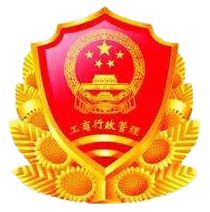

品牌: Cayman
 下载产品说明书
下载产品说明书 用小程序,查商品更便捷
用小程序,查商品更便捷



 收藏
收藏
 对比
对比 咨询
咨询反应种属:
(+) Human TLR9
(+) Canine TLR9
(+) Equine TLR9
(+) Mouse TLR9
(+) Rat TLR9
(+) Rhesus monkey TLR9
(+) Human TLR9
(+) Canine TLR9
(+) Equine TLR9
(+) Mouse TLR9
(+) Rat TLR9
(+) Rhesus monkey TLR9
来源宿主:
Mouse
Mouse
产品介绍
产品信息
宿主
Mouse

免疫原
human TLR9 amino acids 268-284

简单描述
For immunochemical analysis of TLR9

商品描述
The toll-like receptors (TLRs) in mammals comprise a family of transmembrane proteins characterized by multiple copies of leucine rich repeats in the extracellular domain and an interleukin-1 (IL-1) receptor motif in the cytoplasmic domain. Like their counterparts in Drosophila, TLRs signal through adaptor molecules.1 The TLR family is a phylogenetically conserved mediator of innate immunity that is essential for microbial recognition.2 Most mammalian species have between ten and fifteen types of TLRs. Ten functional TLRs (TLR1-10) have been identified in human. Humans also encode a TLR11 gene but it contains several stop codons and protein is not expressed. However, mouse and rat TLR11 are functional, and it is thought that human TLR11 function was lost during evolution. Historically speaking, TLR expression has been most extensively studied in the immune system. Overall, TLRs are highly expressed in immune competent cells, including macrophages, dendritic cells, neutrophils, mucosal epithelial cells and dermal endothelial cells. However, TLRs have also been identified in many other cell types and anatomical tissue locations where they are expressed either constitutively or induced during infection. Gene knockout experiments suggest that TLR9 acts as a receptor for unmethylated CpG dinucleotides in bacterial DNA.3 Human and mouse TLR9 share an overall amino acid identity of 75.5%. TLR9 is highly expressed in spleen.

同种型
IgG1κ

克隆号
26C593.2

应用
实验应用
WB, FC (intracellular and cell surface), IHC (frozen and paraffin-embedded sections), and ICC

反应种属
(+) Human TLR9
(+) Canine TLR9
(+) Equine TLR9
(+) Mouse TLR9
(+) Rat TLR9
(+) Rhesus monkey TLR9

背景
别名
TLR9

制备和贮存
保存
≥ 1 year

保存方式
-20°C
文献
文献
1.Srivastava, M.D., and Srivastava, B.I.S. Expression of mRNA and proteins for toll-like receptors, associated molecules, defensins and LL-37 by SRIK-NKL, a CD8+ NK/T cell line. Leukemia Research 7, 813-820 (2005).
2.Gibson, F.C.,Hong, C.,Chou, H.H., et al. Innate immune recognition of invasive bacteria accelerates atherosclerosis in apolipoprotein E-deficient mice. Circulation 109, 2801-2806 (2004).
3.Hemmi, H.,Takeuchi, O.,Kawai, T., et al. A toll-like receptor recognizes bacterial DNA. Nature 408, 740-745 (2000).
2.Gibson, F.C.,Hong, C.,Chou, H.H., et al. Innate immune recognition of invasive bacteria accelerates atherosclerosis in apolipoprotein E-deficient mice. Circulation 109, 2801-2806 (2004).
3.Hemmi, H.,Takeuchi, O.,Kawai, T., et al. A toll-like receptor recognizes bacterial DNA. Nature 408, 740-745 (2000).

参考图片
声明 :本官网所有报价均为常温或者蓝冰运输价格,如有产品需要干冰运输,需另外加收干冰运输费。







 危险品化学品经营许可证(不带存储) 许可证编号:沪(杨)应急管危经许[2022]202944(QY)
危险品化学品经营许可证(不带存储) 许可证编号:沪(杨)应急管危经许[2022]202944(QY)  营业执照(三证合一)
营业执照(三证合一)